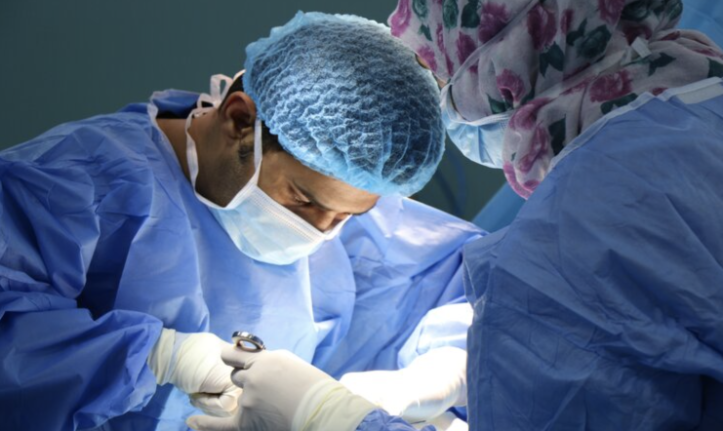Immunotherapy before surgery offers a potential new treatment for rare cancer
Posted on: 08 September 2025
An early phase clinical trial published in Nature Medicine show that patients with mesothelioma - a rare cancer of the lining of the lung - who received a combination of two immunotherapy drugs before surgery had successful surgeries and encouraging early outcomes
Results from an early phase clinical trial presented this week at the World Conference on Lung Cancer Meeting in Barcelona, Spain, and published in Nature Medicine journal shows that patients with mesothelioma - a rare cancer of the lining of the lung that may be caused by exposure to asbestos - who received a combination of two immunotherapy drugs, nivolumab and ipilimumab, before surgery had successful surgeries and encouraging early outcomes.

Prof. Patrick Forde of the Trinity St. James’s Cancer Institute (TSJCI) and School of Medicine, Trinity College led the first clinical trial of combination immunotherapy before surgery for mesothelioma, a cancer that affects about 50 patients in Ireland and about 30,000 patients globally each year.
Surgery is a potential option for some patients with mesothelioma; however it rarely cures the cancer as tumour tends to infiltrate around the lungs making it difficult to remove completely. Immunotherapy drugs known as immune checkpoint inhibitors, in particular those that block receptors called PD-1 and CTLA4, have led to improved survival for patients with advanced mesothelioma by unmasking the tumour to the patient’s immune system. However, up until now, no study has examined their combined use before surgery for mesothelioma.
Prof. Forde leads immunotherapy clinical trials at TSJCI and internationally, particularly those focused on delivering treatment before surgery and increasing the long-term survival after surgery for lung cancer and other cancers.
In the current study, patients received either a single immunotherapy drug or combination immunotherapy for 6 weeks before mesothelioma surgery followed by up to one year of immunotherapy after the operation. Patients in both groups had low rates of serious side effects and were able to proceed with surgery safely. Follow up of patients who received combination immunotherapy showed improved survival compared to previous clinical trials that did not use immunotherapy. In collaboration with colleagues at Johns Hopkins University, analysis of blood samples taken before and during treatment showed that tracking fragments of tumour DNA shed from the tumour into the patient’s blood stream could help predict benefit from the treatment including the likelihood of a successful surgery and avoiding relapse of cancer.
“We are excited to make progress for patients with mesothelioma which is a rare and serious cancer that affects about 50 people annually in Ireland,” said Prof. Forde. “The use of immunotherapy to treat different cancers is expanding across stages of the disease and allied to our recent work in lung cancer this study shows the potential benefits of leveraging the patient’s own immune system prior to surgery in order to recognise and kill cancer cells at the earliest timepoint possible. At TSJCI we have clinical trials ongoing and planned across different types and stages of cancer that aim to apply cutting edge research to maximise benefit for patients.”
In 2024 Prof. Forde joined the Trinity St. James’s Cancer Institute (TSJCI), Ireland’s first internationally accredited Comprehensive Cancer Centre, as Prendergast Professor of Immuno-Oncology with the goal of working with colleagues across Ireland and Europe to improve access for patients to cutting edge cancer clinical trials.
Read: You can read the paper: 'Perioperative nivolumab or nivolumab plus ipilimumab in resectable diffuse pleural mesothelioma: a phase 2 trial and ctDNA analyses', at the following link: https://www.nature.com/articles/s41591-025-03958-3
Media Contact:
Ciara O’Shea | Media Relations | coshea9@tcd.ie | +353 1 896 4204
